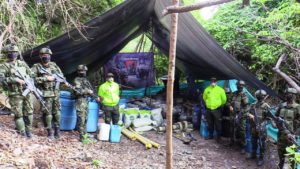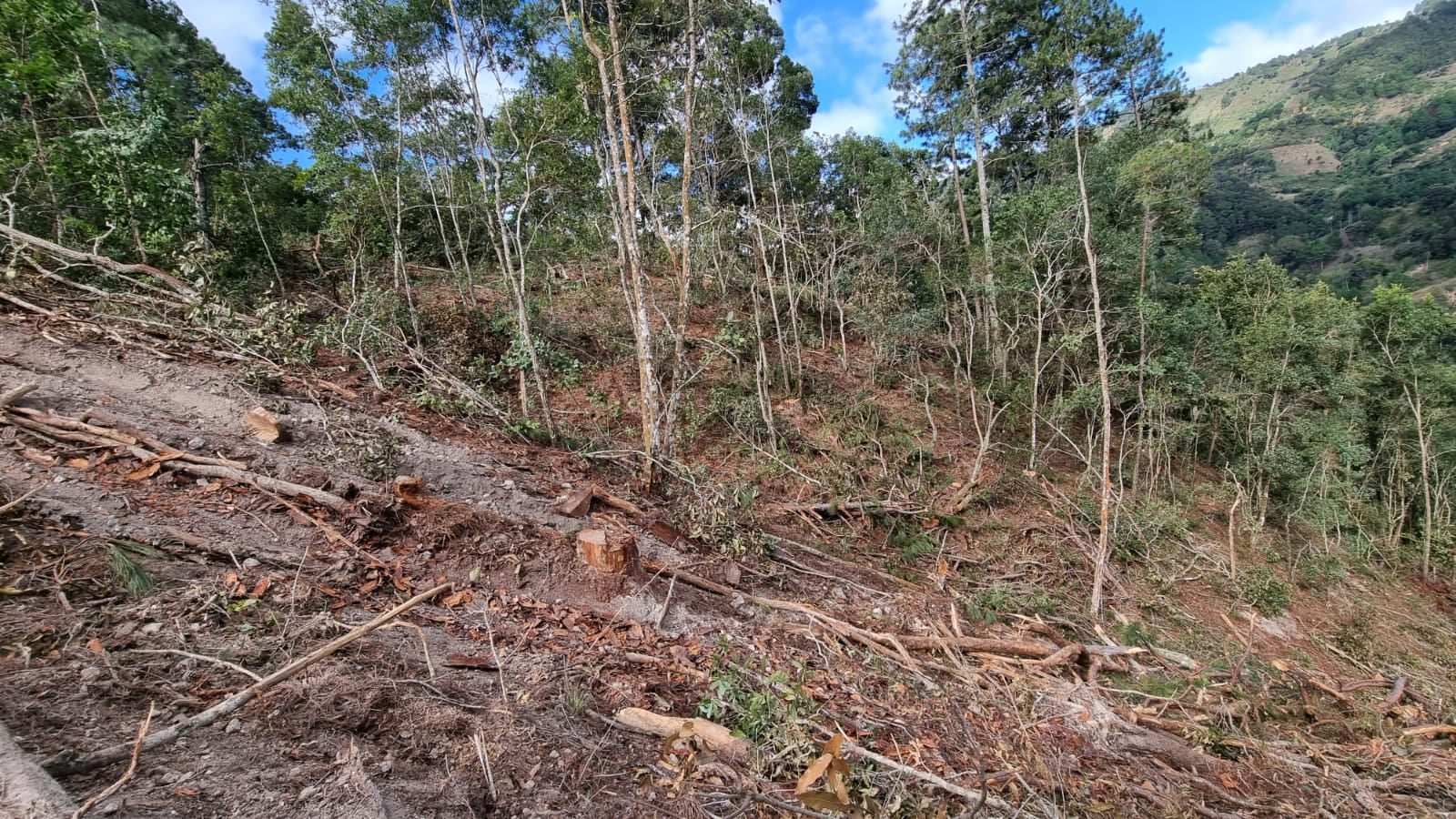Drug trafficking, illegal mining, and illegal logging in Latin America not only fuel violence, but also destroy the environment.
“There was record destruction of the Amazon in 2020, as the rainforest loss an area around the size of Belize, and the situation looks even bleaker in 2021,” Insight Crime, an organization that studies organized crime in Latin America, said in a December 2021 report.
“Deforestation is more intertwined with criminal activities than ever,” the organization added. “Those involved in [illegal] gold mining […], drug trafficking, and illegal logging are working hand-in-hand […] with each other […] to destroy the lungs of the planet […]. Land [is] cleared to build runways for drug planes […], [and] roads built through the forest can be used to move drugs, minerals, timber, and contraband.”
Guatemala
The Genesis Group, a unit of Guatemala’s National Council for Protected Areas that combats environmental crimes in the most inaccessible areas of the Maya Biosphere Reserve, in the country’s north, has been the victim of death threats from narcotraffickers, illegal loggers, and poachers, the environmental journalism platform Mongabay Latam said in December 2021.
In Latin America, narcotrafficking organizations are the “vanguard of deforestation.” It is estimated that up to 60 percent of the logging in the region is “narco-deforestation,” according to The Conversation, an Australia-based independent journalism organization. Guatemala lost 22.3 percent of its forests in the last 20 years and has gone from being a forest nation to a country with a high deforestation rate, the Spanish news agency EFE reported.

Colombia
In the last five years, coca cultivation and illegal mining and sawmills have contributed to deforestation and land clearing in Colombia, accelerating the loss of forests and jungles. The National Liberation Army and dissidents of the Revolutionary Armed Forces of Colombia are leading the destruction, the Belgian nongovernmental organization Crisis Group says on its website.
Illegal crops cultivation is not the only cause of environmental damage as a result of drug production. For example, chemicals used to process coca leaf in laboratories are dumped on site, polluting the soil and water sources of the Amazon rainforest, Crisis Group said. According to the United Nations Office on Drugs and Crime (UNODC), the production of 1 kilogram of drugs requires nearly 500 kg of chemicals.
Thanks to continuous operations, Colombia is the country with the largest volume of chemical substances seized, the UNODC said. In 2021, authorities seized more than 640,000 kg of cocaine and more than 55 tons of solid chemical precursors, the Colombian Ministry of Defense said on Twitter on January 14, 2022. With the Artemis campaign, launched in April 2019, authorities recovered more than 22,600 hectares of forest from degradation, Deisy Jaramillo, head of the Specialized Directorate against Human Rights Violations for the Colombian Office of the Attorney General, added.
Peru
In January 2022, Mongabay Latam reported that “the scale of violence facing indigenous peoples in Peru is related to illegal mining and logging, but mainly narcotrafficking, a crime that, in addition to causing deforestation, keeps many native communities cornered.”
Illegal activities affect the environment and threaten environmental defenders. “During this time of the pandemic [2020-2021], there have been 10 murders of indigenous people and leaders who defend their forests,” Lissette Vásquez of the Peruvian Deputy Ombudsman’s Office for the Environment, Public Utilities, and Indigenous Populations, told Mongabay Latam.
Partner countries, however, work tirelessly against these scourges. On January 13, 2022, for instance, Colombia and Peru agreed to strengthen the fight against transnational organized crime, the Colombian Ministry of Defense told the press. The agreement authorizes joint work against transnational crimes, narcotrafficking, and organized armed groups; intelligence exchange to combat threats; environmental protection; and operations to counter illegal mining.








